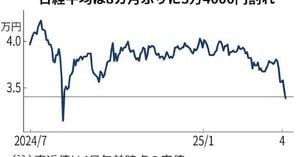In a dramatic escalation of international trade tensions, former President Donald Trump has announced sweeping tariffs that will affect imports from various countries, including a significant 20% tariff on Italian agro-food products. This announcement, dubbed "Liberation Day" by Trump, is set to take effect on April 9, 2025, and is poised to have far-reaching consequences for both American consumers and European exporters.
According to reports, the tariffs are expected to increase costs for American consumers by approximately €1.6 billion, which will directly impact the prices of a wide range of Italian food products. The Italian agricultural sector, particularly vulnerable to such tariffs, is bracing for a substantial decline in sales as the tariffs may lead to a rise in 'Italian sounding' products—goods that mimic Italian products but are not authentically made in Italy. Coldiretti, an Italian agricultural organization, has highlighted the potential for a significant depreciation of Italian goods in the U.S. market.
Micaela Pallini, president of Federvini, expressed her deep concern regarding the implications of these tariffs on the Italian wine, spirits, and vinegar sector, which alone is worth over €2 billion in exports to the United States. "This choice represents a serious setback in the principles of international free trade and will heavily damage transatlantic exchanges," Pallini said. She noted that the last time such tariffs were imposed, Italy lost up to 50% of its exports to the U.S., a precedent that looms ominously for the current situation.
In the wake of Trump's announcement, Ursula von der Leyen, president of the European Commission, responded with a firm declaration that the EU is prepared to negotiate but is also ready to retaliate if necessary. "The consequences of the tariffs will be terrible for millions of people worldwide," von der Leyen stated, emphasizing that the increased costs would particularly burden vulnerable citizens.
Trump's administration has framed these tariffs as a means to correct what they perceive as unfair trade balances, claiming that the U.S. has been a victim of exploitative practices for decades. During his announcement, Trump asserted that the tariffs would usher in a new era of economic prosperity for the United States, dubbing it the "age of gold" for America. "Make America Wealthy Again" was his rallying cry as he declared that the tariffs would generate billions to help reduce taxes and the national debt.
The tariffs also come with reciprocal measures targeting the 60 countries deemed to have the most significant trade imbalances with the U.S. For Europe, the tariffs set at 20% will add to existing tariffs on steel and aluminum, as well as a previously announced 25% tariff on automobiles effective from April 3, 2025. This multifaceted approach has raised concerns about the potential for a full-blown trade war.
In response to these developments, European leaders have been quick to devise a strategy that encompasses unity, diversification, and internal market harmonization. Von der Leyen has proposed increasing the purchase of liquefied natural gas from the U.S. as a conciliatory gesture while simultaneously extending the suspension of retaliatory measures against U.S. products until April 14, 2025. However, this has been met with skepticism, as many believe that appeasing Trump's administration has not yielded favorable results in the past.
As the situation unfolds, the economic ramifications are already beginning to take shape. Following the announcement of the tariffs, the dollar saw a significant decline, dropping 0.5% against the euro and 1.2% against the yen. Futures on major U.S. stock indices plummeted, with the Dow Jones falling by 0.5%, the S&P 500 by over 1.5%, and the Nasdaq by 2.3%. The volatility in the markets underscores the apprehension surrounding the potential fallout from Trump's tariffs.
Moreover, the impact of these tariffs extends beyond just the immediate economic consequences. The National Retail Federation has raised alarms about the increased anxiety and uncertainty these tariffs will create for American businesses and consumers alike. David French, the federation's executive vice president, pointed out that the tariffs would disproportionately affect vulnerable communities, including low-income families and small retailers.
As the EU contemplates its next steps, there is a palpable tension surrounding the possibility of retaliatory measures. Von der Leyen has indicated that the EU has the necessary tools to respond effectively, including potential tariffs on American goods and services, particularly targeting the tech giants and financial institutions that dominate the U.S. market.
In conclusion, the implications of Trump's tariff announcement are vast and complex, affecting not only the agricultural sector in Italy but also the broader landscape of international trade. As both sides prepare for potential negotiations and countermeasures, the world watches closely, aware that the stakes are high and the outcomes uncertain. The unfolding trade tensions serve as a stark reminder of the interconnectedness of global economies and the potential consequences of protectionist policies.







